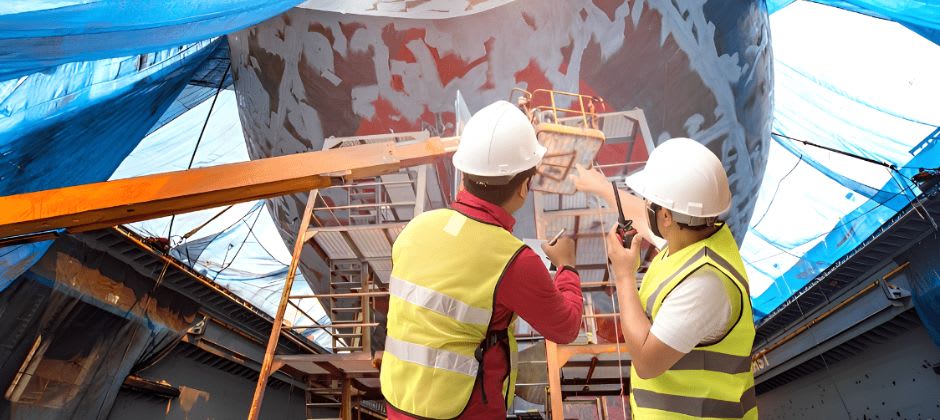Course description

The Petroleum Cargo Calculations course is meticulously designed for maritime shipping and oil & gas professionals. This course offers a comprehensive exploration into the specialised field of petroleum cargo calculations and tank surveying, which are integral to the efficient and safe transportation of oil and gas. Emphasising real-world applications, the course delves into the complexities of calculating and managing liquid and liquefied gas cargoes, a critical skill for those working in marine terminals, aboard tankers, and within the global logistics chain.
Participants will engage with various topics, from fundamental principles to advanced techniques, covering different types of petroleum products and their handling. The course is structured to build a deep understanding of the challenges and responsibilities associated with the transportation and storage of oil & gas cargoes. By addressing various scenarios encountered in onboard tankers and shore terminals, the course ensures that participants are well-equipped to handle cargo calculation's dynamic and often complex nature in the global shipping industry.
Upcoming start dates
Outcome / Qualification etc.
Upon completion, participants will be equipped to:
- Accurately calculate the tonnage of petroleum cargoes, a critical component in oil & gas marine terminal operations. This includes mastering the application of industry-standard petroleum tables and utilising advanced mathematical techniques to ensure the precision of cargo figures.
- Implement effective strategies for planning and managing storage and transfer systems for a range of petroleum products, from crude oil to refined fuels and liquefied natural gas (LNG). This objective focuses on optimising logistics and ensuring the efficient movement of products within and between terminals.
- Develop expertise in calculating the Vessel Experience Factor (VEF), a crucial metric in maritime logistics, to achieve more accurate cargo calculations for each tanker. Understanding VEF allows for better planning and decision-making, improving efficiency and cost-effectiveness in naval operations.
- Manage complex cargo figures and undertake rigorous calculations to determine hull stress curves for each voyage. This aspect is vital for ensuring vessels' structural integrity and seaworthiness, enhancing safety and compliance with maritime regulations.
Training Course Content
ULLAGE SURVEYS & Vessel Experience Factor (VEF)
- Tank Soundings
- Sounding Devices
- Closed sounding cycles
- Inerted Atmosphere surveys
- Dry Dock Surveys
- Multiple gauging points
- Water Dips
- Sediment Measurements
- VEF calculation
- Disputed figures
- Re-calculation procedure
Liquid Volume Calculations
- Non- Liquid Volume
- Standard Petroleum Tables
- Sludge calculation
- Tank Sediments
- Wedge Formula
- Free Flowing
- Correction Tables
- Density & Specific Gravity
- Temperature Corrections
- Viscosity
- Pour Point
On Board Quantity Calculations (OBQ)
- Sounding/ Innage Calculations
- Fixed and Portable Equipment
- Hazards associated with Static Electricity
- Charge generation
- Charge accumulation
- Electrostatic hazards during tank Gauging
- Ship Shore Bonding
- Synthetic clothing
- Hand tools
- Trim & List Calculations
- Taking Sample
Piping & Pumping Arrangements
- The Direct Line System
- The Ring Main System
- Centrifugal Pumps
- Submerged Pumps
- Cargo Stripping Systems
- Inert Gas Systems
- Crude Oil Wash System
- Tanks Vent System Slop Tanks
- Oil Content Monitors
- The Oil Record Book
- International Oil Pollution Prevention Certificate (IOPPC)
- Dealing with Pollution Emergencies s
HAZARD CONTROL – OPERATIONAL HAZARD MANAGEMENT
- Hazard and Risk Control
- Selection of control measures
- Safety equipment and protection of personnel
- Personal Protective Equipment (PPE)
- The role of PPE (Personal Protective Equipment)
- Portable Gas Detectors and Oxygen Analyzers
- Hydrocarbon Gas Detectors.
- Testing for poisons and other specialised substances
- Oxygen detection
- Other hazards associated with confined spaces
- Testing atmospheres of enclosed spaces
- Long term sampling
- Breathing Apparatus, Respiratory Aids and Escape Sets
- Self-Contained Breathing Apparatus
- Air Line Breathing Apparatus
Surveying the shore
- Shore Tanks Inspection
- Terminal Safety Survey
- Shore Line Pressure
- Loading arms/hoses inspection
- Manifold Drain
- Shore Bonding procedure
- Retention of Samples
- Shore Tanks Water Dips
- Final Figures Comparison
- Ship/Shore Interface
- Issuing Survey Reports
Request info
London Maritime Academy
London Maritime Academy provides a wide range of maritime training courses tailored to the global industry. Located in London and known for international standards, we offer diverse Classroom and Online courses taught by highly experienced experts in the maritime sector....

